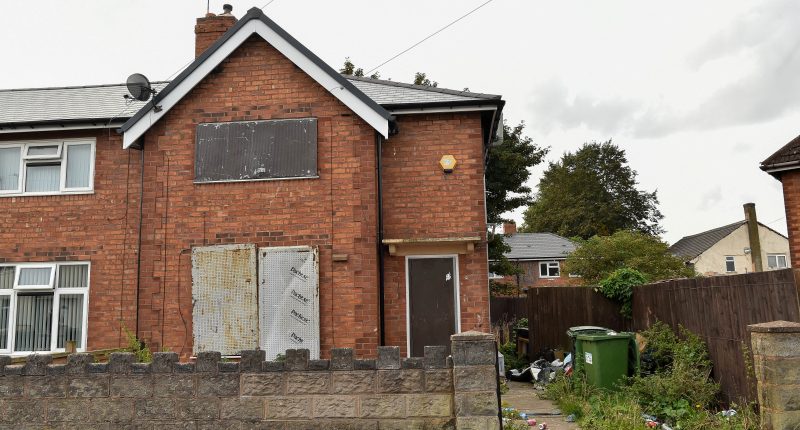THOUSANDS of potential homebuyers may struggle to get mortgages due to “quirky” features that could make a home “uninhabitable”, experts have warned.
With mortgage rates still high, buyers are increasingly looking for ways to knock down the cost of their home – and renovation projects are top of the list.
Homes requiring renovation was the top feature buyers were looking for at the end of 2023, according to property website Rightmove.
And there were over a quarter of a million empty homes falling into disrepair as of November last year, Government figures show.
Yet, many of those looking to buy a fixer-upper may not realise they could face difficulty getting a mortgage, as banks are reluctant to lend on properties they deem “uninhabitable”.
Banks and building societies typically require homes to be “habitable”, which in this context means they are fit to live in right away.
MORE ON MORTGAGES
So, while a property in need of cosmetic changes should be fine, homes that require a lot of refitting and structural work may put lenders off.
While it might make sense that a lender won’t want to gamble on a structurally unsound property, some of the reasons they won’t extend a loan are less obvious.
For example, a lack of facilities like a working kitchen and problems with the land outside your home can all turn a bank off your mortgage application.
“There are a variety of things that can concern lenders, so anything quirky or unusual is best addressed up front rather than undergoing an application that may have little to no chance of success,” said David Hollingworth, associate director at broker L&C Mortgages.
Most read in Money
Lack of basic facilities
A kitchen is obviously a staple in a home, but those looking to do up a run-down property might be planning to have their own brand new kitchen fitted.
So it might come as a surprise that the lack of a working kitchen before you buy the property is likely to put a mortgage lender off.
“A property without a kitchen would likely face an issue at valuation, as it’s a pretty basic requirement and need for a property to be habitable,” Mr Hollingworth said.
“The same would go for a bathroom – a bathroom is a minimum expectation for a property being habitable.”
He explained that properties with multiple kitchen areas could also create issues with a mortgage application as it’s a quirky feature.
“Lenders are likely to be more flexible where the second kitchen is part of an annexe or ‘granny flat’ although there may be more restrictions if it’s let out,” he said.
“However a second kitchen in the main property would not be typical and could therefore be flagged by valuation and affect the lending decision.”
Lack of services and utilities
To be considered habitable for mainstream lenders, homes must generally have connected services and utilities, such as being connected to water mains – particularly the kitchen and bathroom.
“This is again a standard exception to be habitable – the kitchen and bathroom need to be in working order,” Mr Hollingworth explained.
Santander, for example, states for all mortgage applications, “the property must be habitable with a working kitchen and bathroom as a minimum before any money will be released.”
Homes will also need working electricity, and some lenders will not grant a mortgage on a property that has no central heating, according to mortgage firm Think Plutus.
Thin walls
Structurally, most lenders won’t approve a mortgage on a house with just one layer of brick wall, which could be an issue with some older properties built before two layers became standard.
A single layer of brick, known as a single skin construction, is not typical for modern homes which tend to have a cavity with two layers.
However, it may depends on how much of the property is affected by the single layer.
“Some lenders’ decisions will depend on the valuer comments and assessment and if it’s only a relatively small area of the property then it may well be acceptable,” Mr Hollingworth said.
Japanese Knotweed
Everyone knows Japanese Knotweed is not a plant you want to find in your garden and can make it difficult to sell a home.
But they may not have considered that this is because most lenders won’t offer a mortgage on a home where the plant has been found – at least until it’s removed.
This is because the plant can cause damage to building structures by targeting gaps in the foundations and attempting to grow through them.
Mr Hollingworth said: “Japanese Knotweed is something homebuyers may be more aware of these days, and valuers and lenders have a more graduated response now than a black/white decline like in the past.
“It depends how close the Knotweed is to the house and whether there is appropriate treatment in place.”
Agricultural ties
Properties with agricultural ties can face real issues when it comes to getting a mortgage, which in turn can affect the value of the home – perpetuating this cycle.
An agricultural tie is a legal restriction that limits who can live at the property and what work can be done on the land, which can make it technically uninhabitable.
For example, the restriction may say only someone employed in agriculture can live at the residence, while planning permission for work on the property can be very difficult to get granted.
According to country mortgage firm R&BS, a property with an agricultural tie typically goes for 20-30% less than a similar property without this restriction.
“Agricultural ties are likely to be unacceptable for regular lenders,” Mr Hollingworth said.
“Even if these ties aren’t in place, they may have some limits on property with very large acreage.”
You can find out if a property has an agricultural tie by getting a local search done.
Thankfully, you can apply to the local council to have the tie removed if you can prove there’s no longer any agricultural work going on on the land.
What can I do if my dream property is uninhabitable?
Typically, properties in need of major renovation will advertise as “cash buyers only”, which means you must be able to buy the property without a mortgage.
Fixer-upper projects tend to sell for less than a home in good shape and this type of property often pops up at auctions, where you may be able to bag an even better deal.
So, if you can get the cash together, that can be a way to get your dream renovation project for a bargain price.
There are also specialist mortgage lenders which may focus on homes with particular quirks.
There are specific “agricultural mortgages” for anyone looking to buy a property on farmland.
Barclays, for example, will offer a loan for farmers needing to borrow over £25,000.
In some cases, a mainstream lender might be willing to offer a mortgage on a renovation project home, but not for the full amount.
So, you might still be able to get a deal if you can come up with a bit more deposit.
Are there any other issues that could stop me from getting a mortgage?
Aside from being habitable, there are other potential issues that could block your mortgage application from being approved.
Lenders are generally tightening their criteria across the board, Mr Hollingworth warned, so be aware of this when looking at properties that may have “odd” or “quirky” features.
Earlier this year, we revealed lenders have introduced restrictions on some high-rise flats where there is no lift in the building.
READ MORE SUN STORIES
We also revealed last year that most banks and building societies now have strict criteria for lending on homes with spray foam insulation – and in some cases they won’t lend at all.
It’s worth getting a surveyor round to inspect a property to check everything is structurally sound and there are no serious issues before going through with a purchase.
How to get the best deal on your mortgage
IF you’re looking for a traditional type of mortgage, getting the best rates depends entirely on what’s available at any given time.
There are several ways to land the best deal.
Usually the larger the deposit you have the lower the rate you can get.
If you’re remortgaging and your loan-to-value ratio (LTV) has changed, you’ll get access to better rates than before.
Your LTV will go down if your outstanding mortgage is lower and/or your home’s value is higher.
A change to your credit score or a better salary could also help you access better rates.
And if you’re nearing the end of a fixed deal soon it’s worth looking for new deals now.
You can lock in current deals sometimes up to six months before your current deal ends.
Leaving a fixed deal early will usually come with an early exit fee, so you want to avoid this extra cost.
But depending on the cost and how much you could save by switching versus sticking, it could be worth paying to leave the deal – but compare the costs first.
To find the best deal use a mortgage comparison tool to see what’s available.
You can also go to a mortgage broker who can compare a much larger range of deals for you.
Some will charge an extra fee but there are plenty who give advice for free and get paid only on commission from the lender.
You’ll also need to factor in fees for the mortgage, though some have no fees at all.
You can add the fee – sometimes more than £1,000 – to the cost of the mortgage, but be aware that means you’ll pay interest on it and so will cost more in the long term.
You can use a mortgage calculator to see how much you could borrow.
Remember you’ll have to pass the lender’s strict eligibility criteria too, which will include affordability checks and looking at your credit file.
You may also need to provide documents such as utility bills, proof of benefits, your last three month’s payslips, passports and bank statements.









